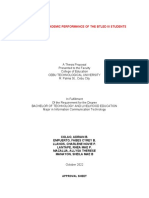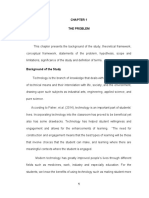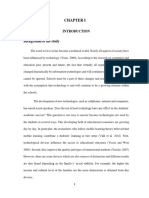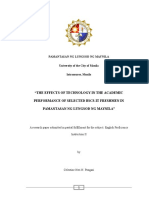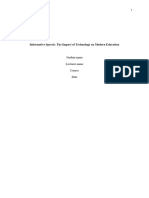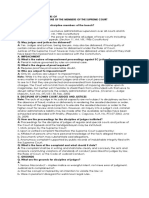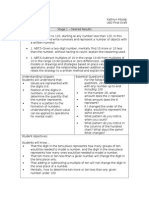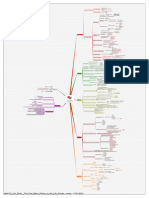0% found this document useful (0 votes)
24 views19 pagesPAPI RESEARCH (Chapter 1-3)
This undergraduate thesis examines the impact of technological limitations on the academic performance of second-year Bachelor of Elementary Education (BEED) students at Palawan State University. It aims to identify the technological challenges faced by these students, assess how these limitations affect their academic performance, and explore strategies they employ to overcome such challenges. The study highlights the importance of addressing these issues to promote educational equity and ensure all students have access to necessary resources for academic success.
Uploaded by
alexandermagalonadumagtoyCopyright
© © All Rights Reserved
We take content rights seriously. If you suspect this is your content, claim it here.
Available Formats
Download as DOCX, PDF, TXT or read online on Scribd
0% found this document useful (0 votes)
24 views19 pagesPAPI RESEARCH (Chapter 1-3)
This undergraduate thesis examines the impact of technological limitations on the academic performance of second-year Bachelor of Elementary Education (BEED) students at Palawan State University. It aims to identify the technological challenges faced by these students, assess how these limitations affect their academic performance, and explore strategies they employ to overcome such challenges. The study highlights the importance of addressing these issues to promote educational equity and ensure all students have access to necessary resources for academic success.
Uploaded by
alexandermagalonadumagtoyCopyright
© © All Rights Reserved
We take content rights seriously. If you suspect this is your content, claim it here.
Available Formats
Download as DOCX, PDF, TXT or read online on Scribd
/ 19





















